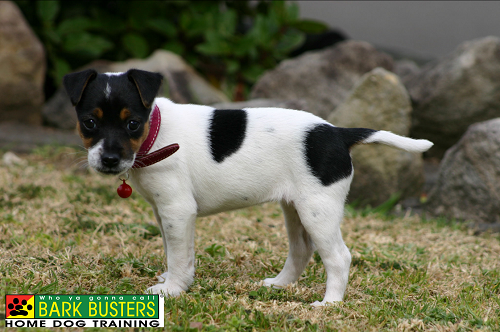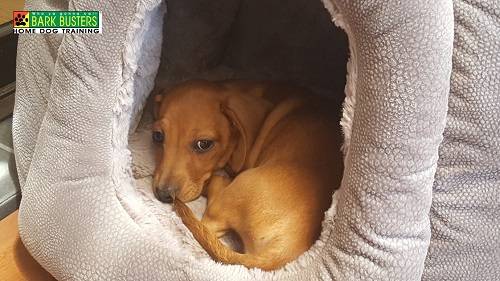
Tips For The First Day
Your pup will be excited and anxious in their new environment. It is your job to make them feel safe and comfortable.
Be patient. Although accidents will happen, do not reprimand your puppy during the first 24-48 hours while they are getting used to their new environment. But do praise them profusely when they do something positive.
Structure is a must. Have a planned schedule from the day your pup arrives–especially when trying to housebreak. Take your puppy outside frequently and stay with them so that you know they have toileted.
Getting accustomed will take them some time. Show your pup where they will be eating, sleeping and toileting. As your puppy adapts to their new surroundings and routine, they will feel more comfortable.
Naps are important for a puppy. Be sure to give them the space and time they need to relax. Try not to overwhelm your puppy. If you have young children, they must be educated to leave the puppy alone when it is sleeping or eating, and not to treat it like a stuffed toy and be carried everywhere. They are like a new baby and will need frequent undisturbed naps throughout the day.
Start training early. Dogs are pack animals and seek authority and reassurance from the pack leader. Providing this leadership is key to managing a dog’s behaviour.

Tips For The First Night
The first night may prove to be a challenge as puppies often cry and whine throughout the night. Also, they will probably need to go out to toilet. Just as the daytime routine is important, so is the evening routine.
Use the crate and bedding at night. As difficult as it is, avoid letting your pup sleep with you or any other family member. It could lead to behaviour problems down the road.
Your puppy's sleeping arrangements should be in a central location in the house. If you let your puppy sleep in your room, you may have trouble getting any sleep.
Tough love should be your motto. Usually, a pup takes a few nights to feel safe at night. Let your neighbours know you are getting a new puppy and that it may need time to adjust to its new home. Take them out to toilet every 3-4 hours. Other than that, they will need to get used to sleeping on their own in their den/crate.
If your puppy still has trouble sleeping at night, hide a ticking clock in their bed. The sound imitates the heartbeat of the mother and can sometimes soothe an anxious puppy. To simulate the warmth of their littermates, place a warm water bottle or oversized stuffed toy in their crate for added comfort.

Tips For The Future
Picking a trainer can be a daunting task. Do your research, ask questions, visit www.barkbusters.com.au for the best training options for you and your growing puppy.
Keeping your puppy healthy starts with a visit to a veterinarian. Usually, a yearly exam and the vet recommended vaccinations will keep your puppy in top shape.
Exercise your puppy regularly. After the initial required vaccinations, short walks, at first, in the neighbourhood or a trip to the park is good for mind and body, for both you and your dog. Be careful not to overdo it with young pups. Never let your puppy off lead as this will cause you issues with recall as the pup grows and becomes more confidence.
Be consistent. Puppies learn through experience and association. The more consistent you are, the faster your puppy will learn and the better he will perform.